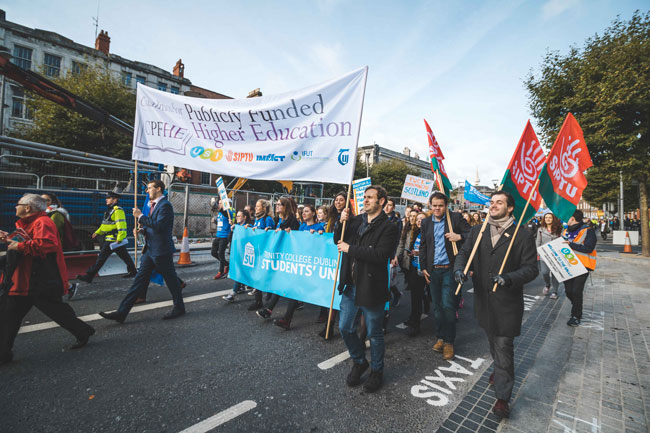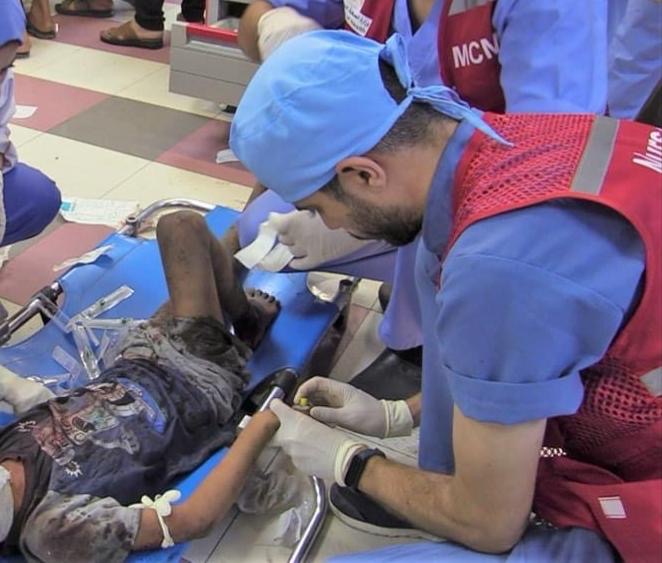In 1993, when many of you were not even born, or were only toddlers attending play school, a newly elected government committed itself to opening the gates to universities. I was well into my five-year term as Minister for Education when a report commissioned on third-level fees from Dr Donal de Buitleir landed on my desk. This report made many recommendations on how to fund the sector – many recommendations repeated in this year’s report from Peter Cassells.
Committed to increasing the number of our citizens graduating with a degree, I could begin to plan for a time when universal access to third-level was a right, not a middle class aspiration. I was ready to call a halt to the poor levels of funding for the sector and, at the same time, I was putting in place plans to break the cycle of disadvantage in certain areas. With our low-tax economy, we were 28th in the OECD table on expenditure on education and in no way were we competing with other EU partners who, in 1993, allowed totally-free access to third-level education.
I could begin to plan for a time when universal access to third-level was a right, not a middle class aspiration
A commitment in the 1993 Fianna Fáil and Labour Party Programme, “For A Partnership Government”, promised that access to third-level education would be increased during the government’s term in office. Our economy was recovering, there was a clamour to increase the number of graduates available for a changing work environment. There was, at the time, an extremely brutal third-level grants scheme in place available to students deemed in need of help. Income limits were low, those students above the grant ceiling were mainly paid for by their parents. All the arguments in the current Cassells Report for the need to increase funding to universities were being thrashed out. Irish universities were funded by the combination of a block grant and student fees. The Institutes of Education – then the Regional Technical Colleges – were in receipt of generous subventions from the EU but these grants were soon to reach their end.
The de Buitleir Report recommended many changes to the existing scheme, most controversially the inclusion of assets in a reformed grants scheme. Yes, farmers’ children featured in student numbers, but their labourers did not. Publicans sent their children to college in noticeable numbers, their bar staff did not. Professors in our universities had free fees for their children, the cleaning staff did not. All those in the higher tax bracket had access to tax covenants and, with clever manipulation, could totally write off university fees. And professors also had access to covenants in addition to their free-fee bonus.
Means testing in Ireland had notoriously been open to abuse, a fact confirmed by de Buitleir. Abolishing access to covenants would “save” the exchequer enough to raise the grant barrier on family income to 21,OOO euros. At those levels, large numbers of lower-middle-class parents, already struggling to put their children through third-level, would lose out totally and access to this new generation of Leaving Certificate graduates would become nearly impossible. Plans to abolish covenants and funds at such a low income level while abolishing covenants for all on higher incomes would be a politically impossible task to deliver. But I, as minister, proposed that by taking the covenant “savings” and redirecting them all to the third-level block grant, the gates of our third-level institutions could be open to all full time undergraduates.
Publicans sent their children to college in noticeable numbers, their bar staff did not. Professors in our universities had free fees for their children, the cleaning staff did not
By now, in a second government term with Fine Gael and Democratic Left, the Labour Party steered a change in the tax regime through cabinet, abolishing tax covenants and committing the savings to a topped-up block grant in lieu of student fees. A limited administration fee which included student union budgets was capped.
Public promises to adhere to this cap have been notoriously broken, leaving the third-level sector still underfunded. Cassells lists today’s Government’s choices. The report will be debated by the Joint Oireachtas Committee on Education and Skills. Students of today will monitor these debates and their parents will have an interest too. The Union of Students in Ireland (USI) has been tremendous in the intervening years, researching best practice and outcomes in other jurisdictions. Informed debate is an absolute and, while I haven’t kept a detailed watching brief on the issue, my bottom line remains. Free access for students results in qualified taxpayers to fund free access in the shortest possible time.







